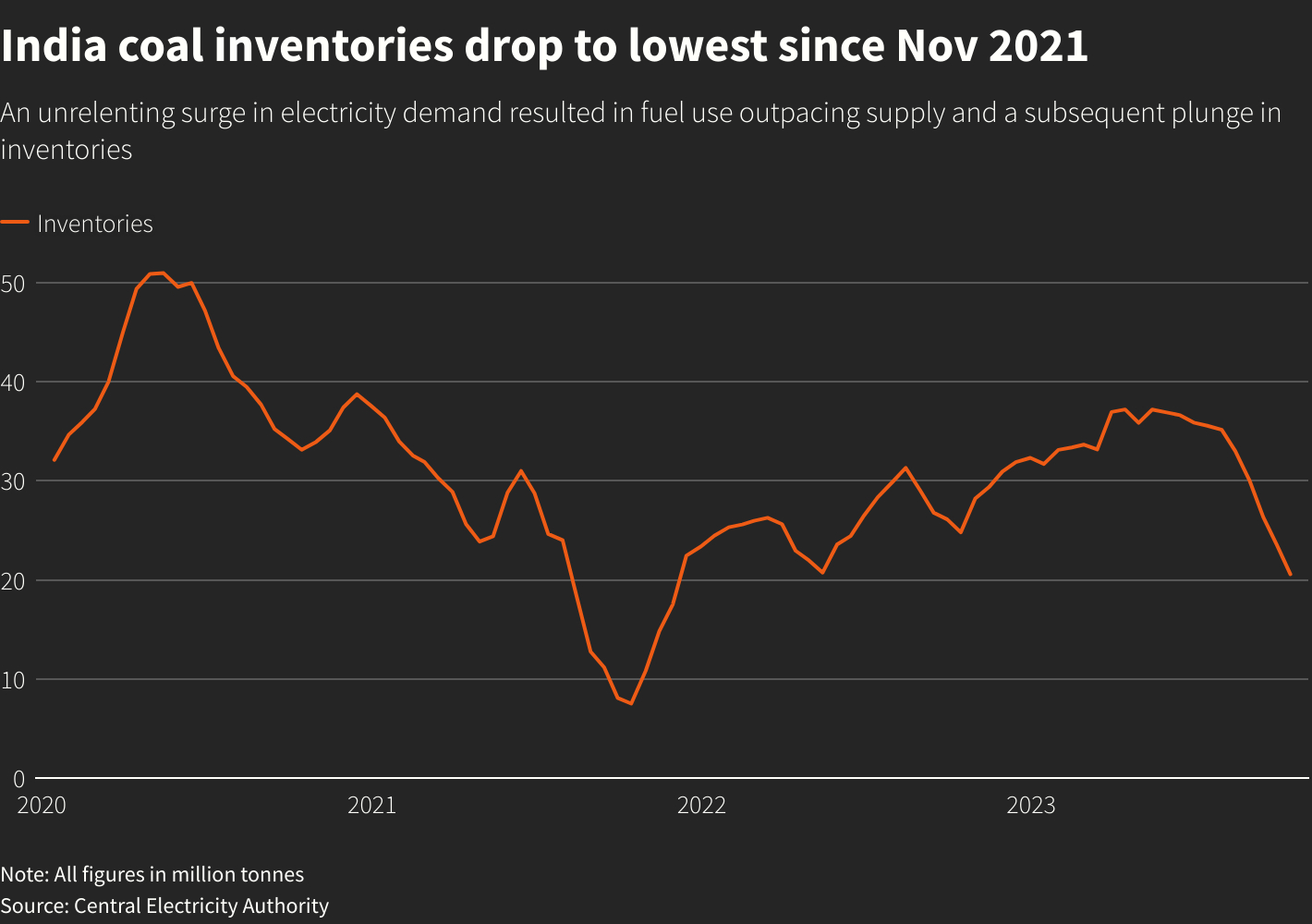
Inventories held by power plants fell by 12.6% to 20.58 million metric tons in the sharpest fortnightly decline since the second half of September 2021. Stocks fell to their lowest level since November 2021.

Reuters Graphics
While India's power demand typically peaks during May, unusually dry weather and an uptick in economic activity has boosted consumption this month.
Stockpiles fell as coal-fired power generation jumped 33% year on year - much faster than the 21.6% increase seen in September. Utilities faced a 20.4% increase in power demand and a 26.8% decline in hydropower output, data from the federal grid regulator showed.

Reuters Graphics
India also ramped up coal-fired power output to make up for a seasonal decline in generation from renewable sources such as wind and solar, whose share in total output fell to 10.1% in the first half of this month from 12.1% in September, the data showed.
The demand surge was so steep that coal stockpiles at power plants fell despite state-run Coal India (COAL.NS), the dominant miner, ramping up supplies to power plants by 6% year on year to 23.5 million tons between Oct 1 and Oct 15.
There was also a nearly three-fold surge in natural gas-fired power generation in the first half of October to 1,993 million kilowatt-hours (kWh), up from 700 million kWh a year earlier.
Stepped-up buying of seaborne thermal coal and liquefied natural gas by India could boost global benchmark prices, which have also benefited from Chinese demand in recent months.
"Steady coal prices and increased demand ahead of the festive season and after the monsoon are the main factors driving the Indian imports," a Indian coal trader said.
The power demand spike also resulted in more outages in parts of the country. Average shortages jumped by 33.1% to 19.3 million kWh a day during the first half of October from 14.5 million units in September, the grid regulator data showed.
Power cuts reported by states to the regulator nearly halved during the first nine months of this year but have increased in recent weeks, the data showed.







